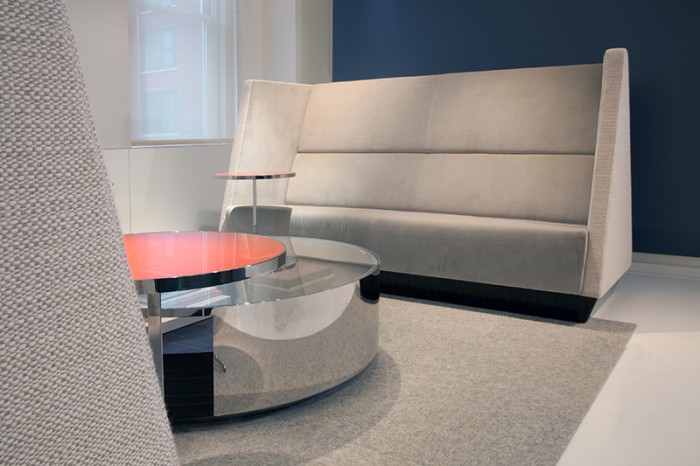Q&A with Jess Sorel, Decca
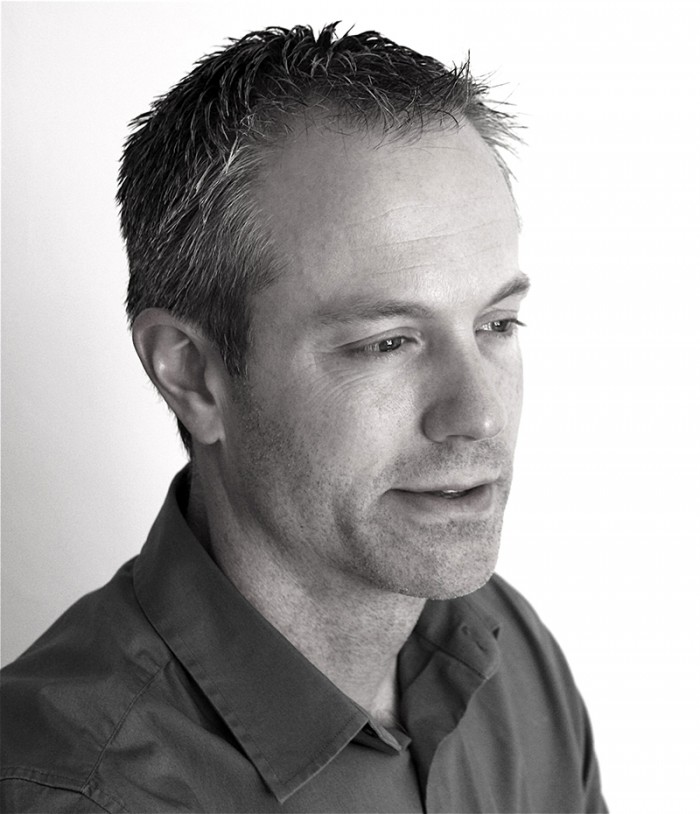 Jess Sorel’s career has spanned nearly twenty years in the contract furniture industry, resulting in a body of work that demonstrates his passion for questioning the status quo. Formerly designer and design director at Metro Furniture, Jess established sorelstudio in the San Francisco Bay Area to provide product design, creative direction and design strategy services to its clientele. He thoroughly enjoys working with his clients to help achieve their creative and strategic objectives. Sorel’s thoughtful approach is evident in the success of his many projects and product designs.
Jess Sorel’s career has spanned nearly twenty years in the contract furniture industry, resulting in a body of work that demonstrates his passion for questioning the status quo. Formerly designer and design director at Metro Furniture, Jess established sorelstudio in the San Francisco Bay Area to provide product design, creative direction and design strategy services to its clientele. He thoroughly enjoys working with his clients to help achieve their creative and strategic objectives. Sorel’s thoughtful approach is evident in the success of his many projects and product designs.
Driven by an intense curiosity about the context in which objects are made and used, Sorel’s primary focus is on understanding and interpreting the world around him, with an eye on the evolution of culture and technology and their impact on the way we live, work and play.
First off Jess, congratulations for winning the Interior Design Best of Year Award 2015 in the Contract / Lounge Single Seat category.
So how did your first get into design? What attracted you to it?
Growing up I spent countless hours with my father learning how to rebuild cars and solve mechanical issues. Eventually this expanded to encompass a general interest in how things are made and what makes them work. Equally influential was my mother who is a trained operatic soprano and all around creative type person. If I didn’t have a spanner (wrench) in my hands, I had a paint brush or piece of artist’s charcoal in its place. Design became for me a fusion of these two worlds; the artful synthesis of problem solving, function and beauty.
“If I didn’t have a spanner (wrench) in my hands, I had a paint brush or piece of artist’s charcoal in its place.”
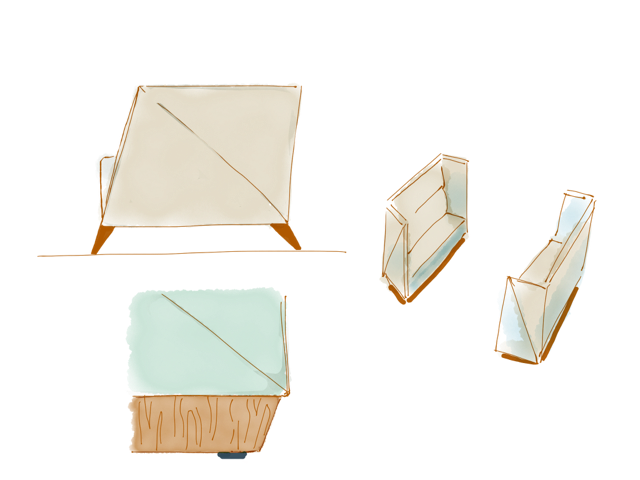
What was the inspiration for the Caid collection?
Visually, Caid was inspired by the study of light and line. I was looking at creating an outside shell that was very architecturally subtle that played with light and shadow, shifting as you walked around the piece or as the light changed and shifted throughout the day. In contrast, the interior of the chair is meant to be inviting and softened to better conform to the human body. From an applications standpoint, the architectural quality of Caid, especially those units with a higher back, create a strong connection to the geometry of the surrounding environment while carving out a soft and intimate space to be occupied by the users.
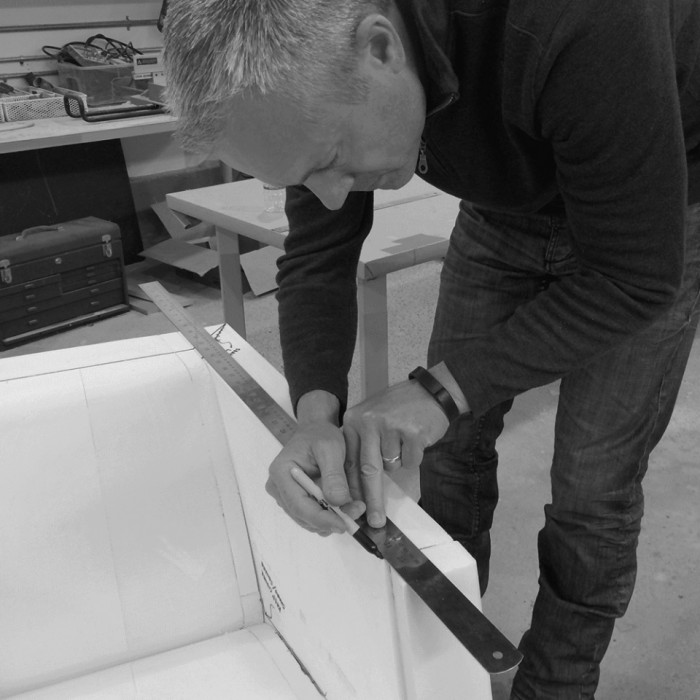
With buildings lending themselves more to an open plan layout, has privacy become an issue?
Privacy has always been an issue and its importance continues to escalate. As environments become more open and casual and people are carrying their entire personal and professional information around with them, the need to access this content privately or share content within the confines of a small group of individuals discretely, becomes ever the more important. Caid addresses this through it’s incorporation of a range of back heights that help to carve out private spaces within open plan environments, creating a sense of security and comfort.
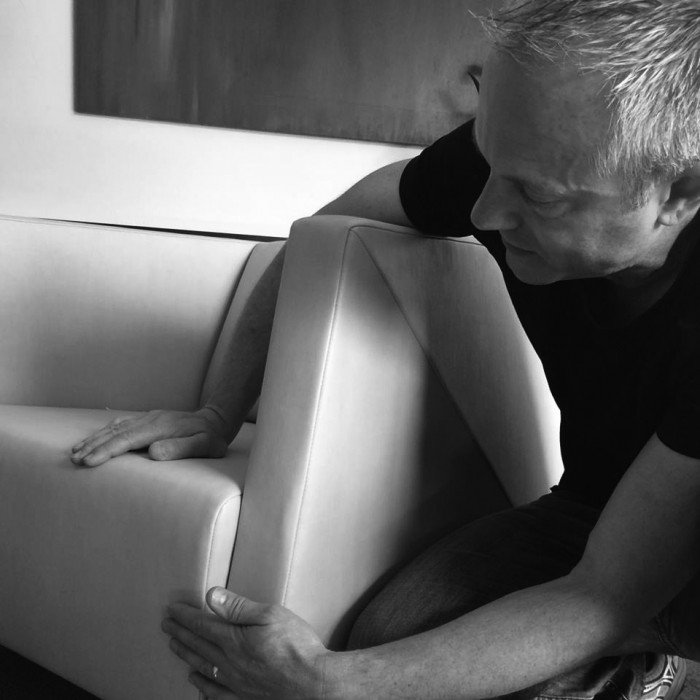
What do you hope people get from the design?
Ultimately, I think good design should draw you in, and once you’ve been drawn in, you shouldn’t be disappointed by your experience. The design should be magnetic and slowly reveal layers of an experience in the way that it is artfully crafted with premium materials, and in the end, provide a luxurious and comfortable place to sit and meet.
“I think good design should draw you in, and once you’ve been drawn in, you shouldn’t be disappointed by your experience.”
